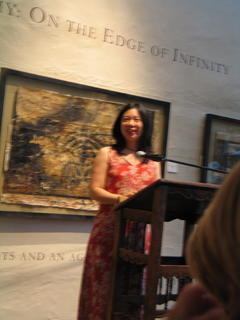Slow Reading
I've been often accused of reading too fast. I can read an entire novel during a plane flight of 3-4 hours. When I was staying at a friend's house recently, I read two of her books by staying up late in the evenings. Some books just beg to be gobbled up. And I realized that I can do this by reading vertically down a page; my eyes make a straight lline down the center of a page, and somehow gather up the sentences and words and make sense of them. Even when I go back and try to read these books slowly, I find that I'm not getting anything extra that I'd missed the first time.
But some books can't be read like this, or they lose all meaning. One of my favorite books of all time, Marilynne Robinson's Gilead, is one of them. I quickly found that my vertical skimming was not working with this book, and that I had to limit my reading to two or three pages at a time, and reading with absolute attention to every word. I read every word, left to right, then back again to the left. It's one of the few books that I actually read "horizontally."
A few people mentioned to me that they found Claire Messud's books "dull." I was so thrilled by hearing her read at Napa that I bought her first book, When the World Was Steady. My first night home, I settled down to read. I was tired and I tried reading with my vertical-skim method. It was awful. I thought, oh what a waste of money. But then a few nights later I gave it another try, doing a slow and deliberate read. And suddenly I fell into the pages, felt totally immersed in something deep and quiet and meaningful. It made all the difference.
Great fast books I've read recently: The Sleeping Father by Matthew Sharpe (ironic, funny and poignant)
We Need to Talk About Kevin by Lionel Shriver (a great character study of the mother of a Columbine-type teen killer)





